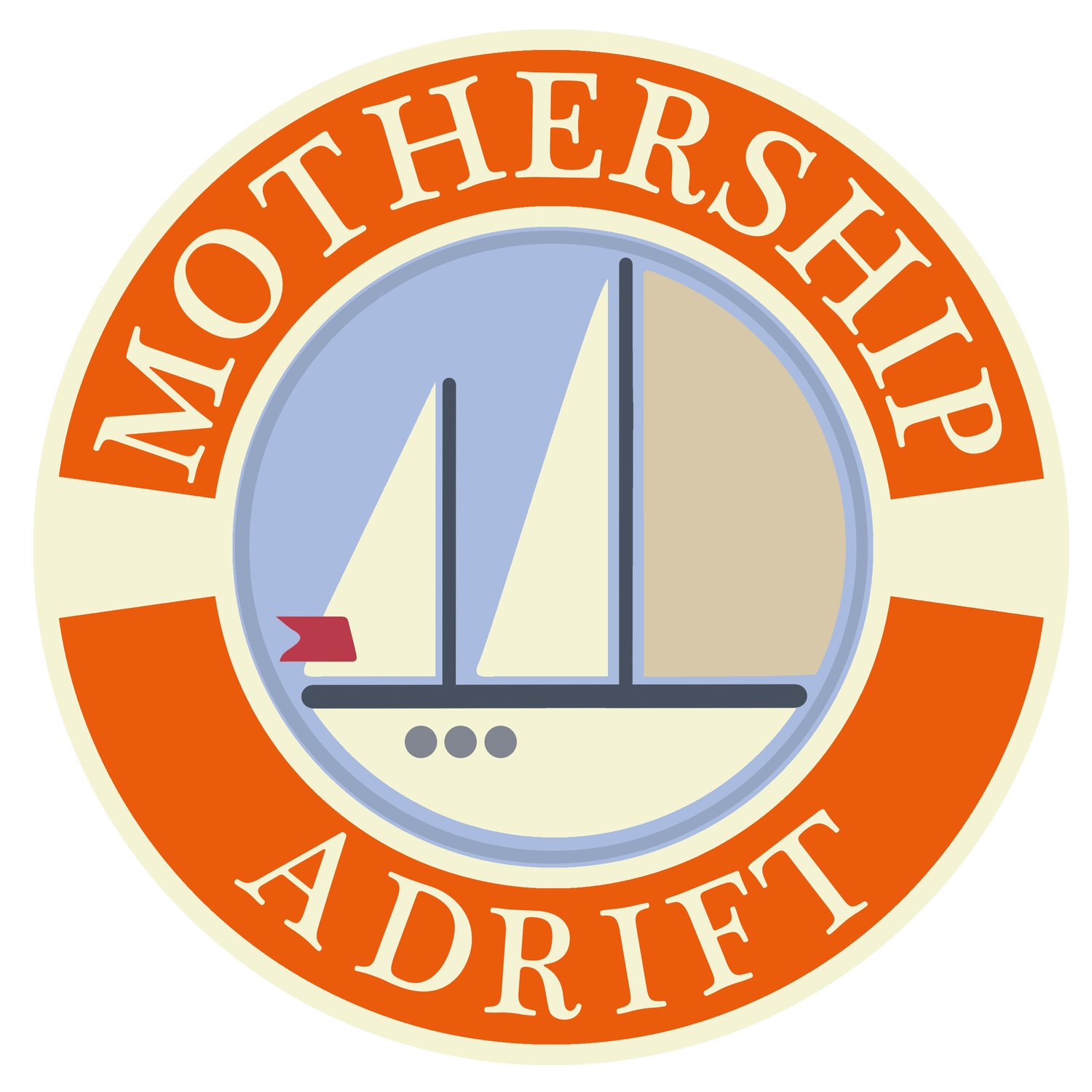The Weirdest People in the World!
01-03-07
“May your days be filled with the gift of freedom, the joy of travel and the magic of adventure”
WEIRD - Western, Educated, Industrialised, Rich, and Democratic
A few weeks ago, I found myself enduring a hellish night watch from Bali to Belitung. I was banging into headwind between Sumatra and Borneo, feverish from salmonella poisoning (thanks Bali!) and the David Byrne song "Once in a Lifetime" going through my head.
“And you may find yourself in another part of the world... Into the blue again, after the money’s gone… And you may ask yourself, ‘Well, how did I get here?”
As I ricocheted down the companionway steps to the heads once again, I thought to myself, ‘How the bloody hell DID I get here?!’
Well… Back in 2010, some evolutionary biologists led by Joseph Henrich wrote a paper called “The Weirdest People in the World” The point of this paper? To tell us that most of the psychological research up until then had been based on WEIRD populations. That’s Western, Educated, Industrialised, Rich, and Democratic folk. Basically, societies like ours, filled with people who think they are the norm but are, perhaps, a sandwich short of a picnic.
"The WEIRDest People in the World", a research paper, later turned into a book by Joseph Henrich
This WEIRD label, despite being a snarky dig at Western values, was meant to highlight how much of psychology and social science research had been carried out in places like North America, Northern Europe, and other Anglosphere, Protestant-dominated regions of the world. The authors pointed out that these WEIRD populations have certain quirky traits and cultural habits that really don’t match up with how the rest of the world ticks.
And then, it dawned on me. How strange that WEIRD people make up about 95% of the cruising crowd!
The Cruising Community
Yep, us WEIRD folks share an inexplicable fondness for freedom, travel, and adventure, through the medium of sail. It’s why we keep washing up on some forgotten atoll with a cool bag, mosquito spray, and a BBQ fork in hand.
WEIRD people make up about 95% of the cruising crowd!
Coincidentally, as I was writing this, the Royal Yachting Association (RYA) dropped one of their Equality Monitoring Surveys into my inbox. “..to highlight where more work needs to be done to ensure that people of all lived experiences can have fair and equitable access to the water, allowing us to inform our new Diversity and Inclusion Action Plan and prioritise areas of improvement for equality, diversity, inclusion and belonging.” I don’t know about you, but I actually hyperventilated reading that sentence.
And I thought, should I tow the party line here and write a post about how the cruising world could do with ‘addressing whiteness’ as the now-disgraced race-baiter Robin DiAngelo once put it?
No. I’ve been circumnavigating with cruisers from all over the globe for nearly a decade, and not once have I met anyone who wants to make cruising exclusive. Quite the opposite, in fact. They’re all too busy feeding their deep curiosity about this amazing planet of ours and the people who live on it to care about things like abstract nouns, collective nouns, or even pronouns.
Vive la différence
Unique traits, quirks and difference make other people fascinating to us—and us to them.
No cruiser ever rocks up to an island and immediately starts lecturing the locals about their lack of equality or diversity, because, it’s precisely those unique traits and quirks that makes their culture intriguing. Our differences make them fascinating to us, and us to them. Sure, with the ubiquity of mobile technology and a shrinking world, we’ll all merge into some sort of homogenised, Borg culture one day, but until then, I’ll take "Vive la différence!" over "Vive la similitude!" any time.
But let’s be clear. Although cruising IS made up primarily of WEIRD folk with their ‘quirky traits’ and ‘cultural habits’, it is not an exclusive club. Everyone from any background is welcome and the more, the merrier.
The Wayback Machine.
Anyway, now I’ve got that off my chest, how did WEIRD societies come about? Well, buckle up because you’re about to share in my feverish, salmonella-induced journey on the wayback machine.
The Wayback machine (WABAC) from the movie, "Sherman and Mr Peabody"
Let’s set the dial to 9th-century Europe, where sprawling family dynasties rule the land. Marrying your first cousin? Totally normal. Nepotism? Absolutely fine - fill your boots. Then, like a bolt out of the blue, the Western Church (later the Catholic Church) shows up to spoil the party and declares cousin marriages an abomination. But they don’t stop there. They stretch this ban to include distant relatives, branding the whole thing sinful.
This wasn’t just the Church getting moral; it was a power play. Big families meant big power, and the Church didn’t fancy competing with these dynasties. So, by banning cousin marriages, they splintered these family empires. Divide and conquer. And gradually, wealth and power were spread around a bit more. As the feudal system began to crumble, the nuclear family, just mum, dad, the kids and the dog, was left.
As the feudal system began to crumble, the nuclear family was left as the societal basic unit
This wasn’t just some minor change to erase dodgy old uncle Frank from the family album; it completely reshaped Europe. As these newly formed families stopped marrying their cousins and started casting the net wider, social networks expanded. Cultural exchange took off. And trust in one’s neighbours and fellow humans became a cornerstone of this brave new world. This trust laid the groundwork for guilds, societies, and even colonies, eventually snowballing into the Industrial Revolution and, most importantly, individualism.
Gone were the days of Great Aunt Maive and twenty cousins dictating your life. People gradually had the freedom to do their own thing. And with fewer familial obligations, people started thinking, ‘what if I could do more?’ A very different mentality to the rest of the world.
The Legacy of Individualism
Fast forward a few centuries, and this streak of individualism is now the backbone of WEIRD societies. People like me, droning on about personal freedom and choice, have become the norm.
But what happens when people embrace this freedom? They don’t just sit behind white picket fences raising kids, they start chasing adventure. Backpacking through Asia, living off-grid on a boat, because, why the hell not?
Individualism means folks are trading the 9-to-5 for freedom, travel, and a more adventurous life.
In WEIRD societies, this obsession with personal autonomy has bred a culture where the predictable no longer cuts it. People aren’t settling for the conventional. They’re packing their bags, hitting the road (or the sea), and posting about it all on YouTube. The same forces that dismantled extended families in medieval Europe are now driving modern folks to trade the 9-to-5 for freedom, travel, and a more adventurous life.
Equality Monitoring Survey
So, there you have it. The Church’s 9th-century ban on cousin marriages in Europe is partly to blame for why WEIRD people like me, feverishly head for the can with David Byrne in the middle of the night off the cost of Sumatra.
Now, if you’ll excuse me, I’ve got to fill in an Equality Monitoring Survey for the RYA.
Deep breath...
If you want more straight-talking tales from life afloat, and insights into us WEIRD folk , then you’ll love our upcoming book. We're inviting early readers to join the pre-launch crew and get behind-the-scenes access as we wrestle it into shape. It’s honest, unfiltered, and occasionally useful. Sign up here to get involved, give feedback, and be part of something that’ll either be a bestseller or a brilliant cautionary tale.








